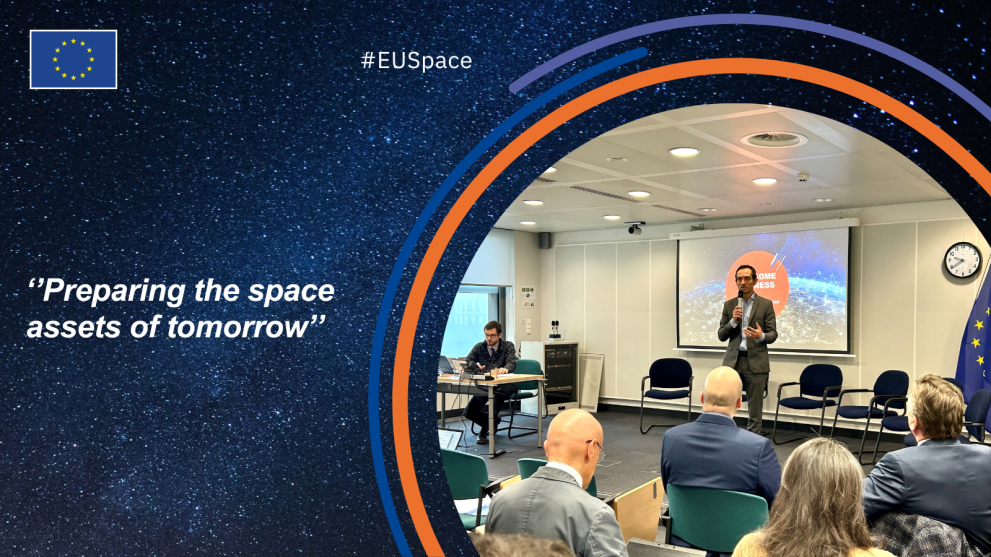
Organised by the Directorate B for Secure and Connected Space (Innovation and new Space – Space and Defence, B2) the workshop aimed to shine a light on the emerging sector of ‘’in space operations and services’’ or ISOS for short. Through interactive panel discussions and Q&A sessions, it provided an overview of the evolving landscape of in-space servicing, assembly, manufacturing and logistics while speakers and participants identified challenges that have slowed down the development of the ISOS market in our continent.
“Act in Space is one of the strategic capacity Europe needs to invest to ensure its future sovereignty” said Guillaume de La Brosse (Head of Unit – DEFIS.B.2). While our US allies lead the way in ISOS (mainly through public procurement managed by the Defence Innovation Unit of DoD), Europe has a promising ecosystem. At the moment, most commercial developments are supported with public funds have reached the R&D and demonstration phase.
Europe’s delay in fully deploying ISOS capabilities can be attributed to both the lack of a regulatory framework and of a harmonised definition as to what is entailed in ‘’in-space operation and services’’.
Testing the existing technologies via demo missions, before going into production, is vital but the testing period should be both cost and time-efficient. Establishing common standards and ensuring a certain degree of interoperability between the systems (for instance docking between satellites) would accelerate market growth.
ISOS to create new potential for EU Space
From satellite life extension (in some cases) to cargo transport and satellite payload upgrades or exchanges, ISOS creates a wealth of possibilities for the European Space industry and the EU Space Programme, in general.
With over 20.000 satellites expected to be launched in the next decade, various orbits are becoming increasingly congested, and the situation is especially pronounced in Low Earth Orbit (LEO). As space debris can go on to cause further damage, potentially taking out functioning satellites solutions need to be found. ISOS entails Active Debris Removal (ADR) initiatives and help stabilise the growth of space debris thus contributing to the EU STM Approach.
As defence experts noted, ISOS capabilities can further enhance Europe’s security and resilience in space notably by allowing it to monitor, upgrade, repair and reconfigure satellites in space. However, ISOS for defence requires a robust concept of operation (CONOPS) and a certain level of secrecy and confidentiality.
One voice across Europe
By the end of the workshop, it became clear that to advance current ISOS technology and boost the existing ecosystem of in-space operations, Europe must set a clear vision and a strategy that will guide its efforts. Workshop participants agreed that frequent consultations with ISOS providers, end users and institutional actors in the form of focus groups or informed dialogues, are some important next steps.
Guillaume de La Brosse pointed out during the opening and closing of the workshop ‘’ISOS can contribute to all three pillars of the upcoming EU Space Law and help address the safety, resilience, and sustainability of space activities and operations.’’
The event was kindly hosted at the premises of HaDEA/REA*
Details
- Publication date
- 1 December 2023
